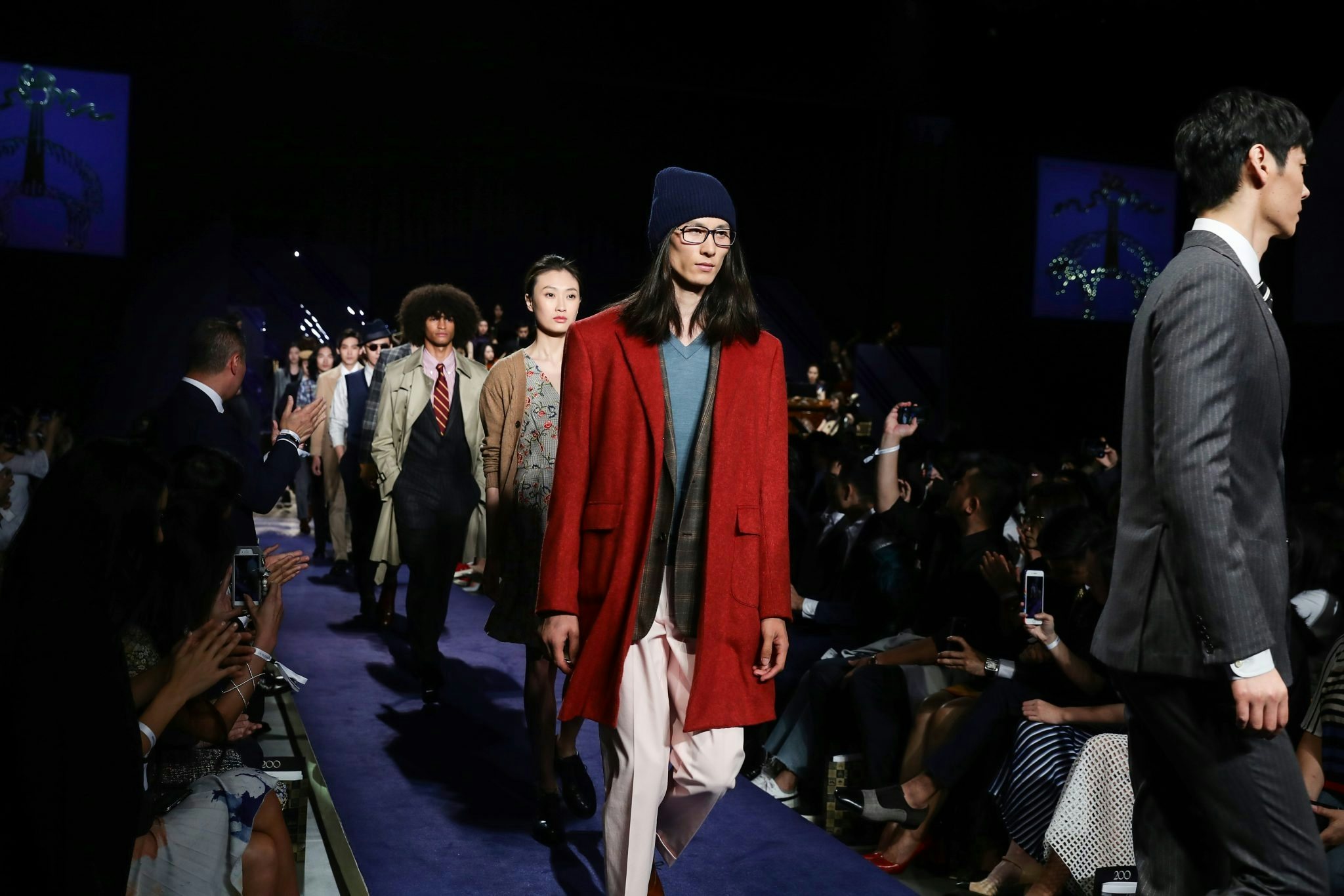American brand Brooks Brothers celebrated its 200th year with events in Shanghai this week including a store opening at the HKRI Taikoo Hui complex on West Nanjing Road, a runway show scored by a live orchestra, and celebrity appearances. The pomp overshadowed the clothes themselves, which remained true to the brand’s relentless accessibility, invariably buttoned down in print with the descriptor ‘preppy’.
Speaking to Jing Daily in Shanghai, Brooks Brothers’ Global Chairman and CEO, Claudio Del Vecchio, said the brand, not the products, needed a reboot having been steered in the wrong direction by Dickson Concepts, which acquired the Greater China license for Brooks Brothers shortly before Del Vecchio purchased the company in 2001.
Dickson Concepts set higher prices for Chinese consumers, but the 90 stores they established in greater China weren’t always in the best locations, Del Vecchio said.
“I think practically speaking they didn’t see the long term,” Del Vecchio said. “There is a term to the license and no guarantee that it is going to be renewed, so every investment they made was made without a longterm view.”
In 2015, the collaboration ended “by mutual agreement”, Dickson Concepts said at the time, with Lane Crawford Joyce Group member Walton Brown taking over in a 50-50 joint venture with Brooks Brothers.
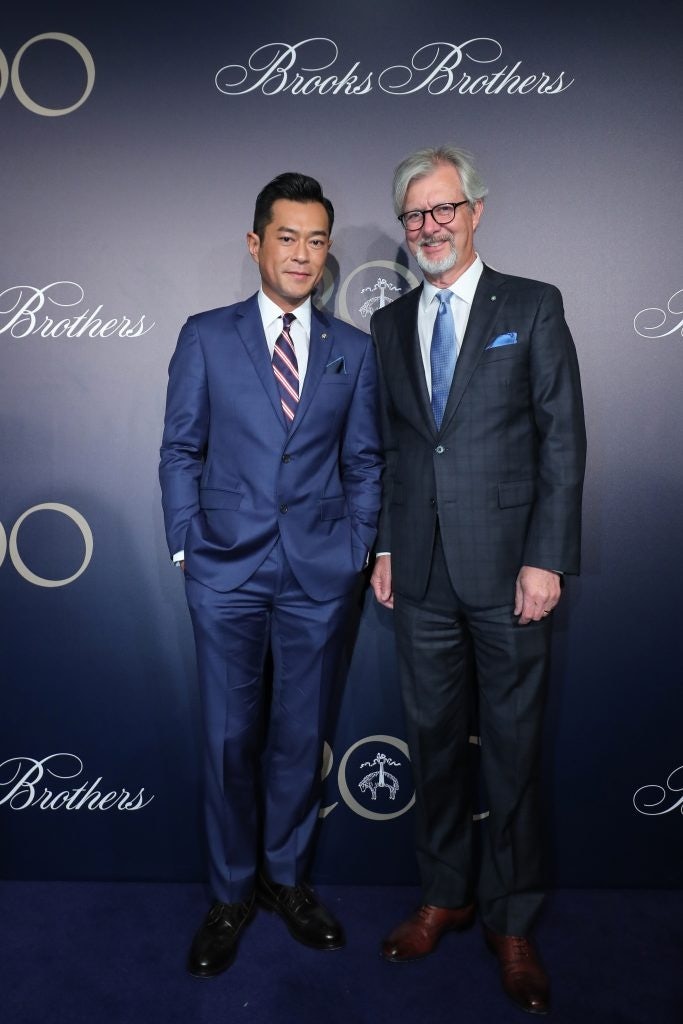
“Everything that surrounds the product has to be quality, so that the assumption is that the product is also quality,” Del Vecchio said. “The location of the stores, the kind of stores, the marketing, the packaging, the level of service, all of those things need to be the same level of quality as the product.”
Now, with the new store on the ground floor of a popular mall, flanked by luxury brands Gucci, Givenchy, and Guerlian, Del Vecchio sees a different problem emerging.
“People come to the store and they look at the tickets and if they don’t know the brand — and in China, honestly, the majority don’t know the brand — they assume it’s not as good quality as other stuff that is more expensive.”
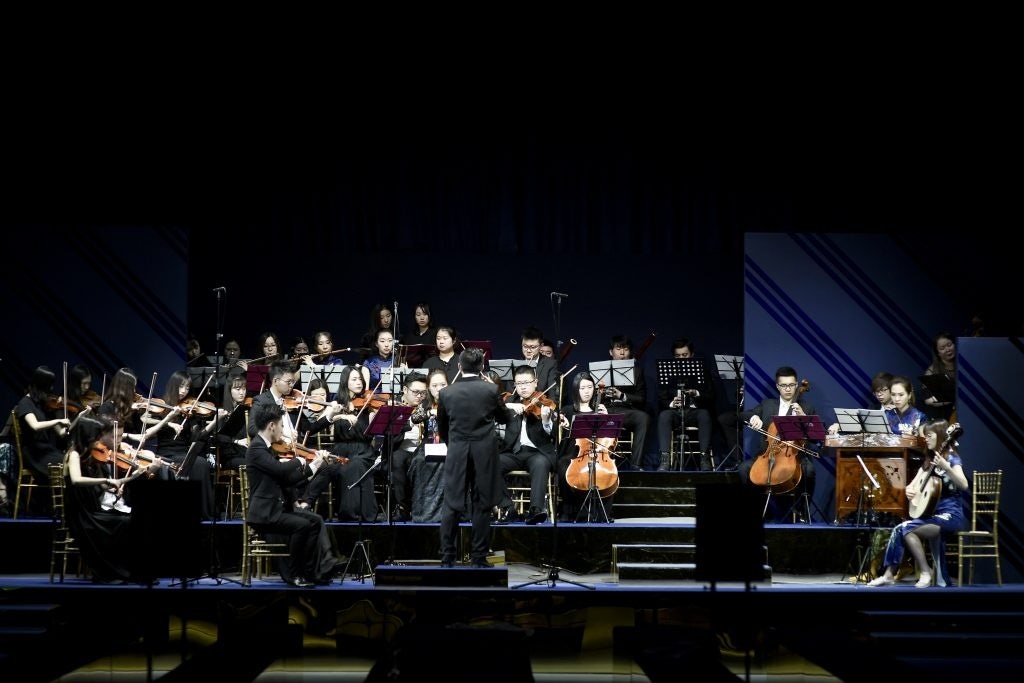
This is New York#
Waiting to enter the fashion show, held at HKRI Taikoo Hui's event center on Thursday night, attendees scanned photos of past U.S. presidents and celebrities associated with Brooks Brothers, a brand education push common to heritage brands trying to bring Chinese consumers up to speed — despite Brooks Brothers having been in China for over a decade.
The orchestra, which included an erhu, guqin, and pipa (traditional Chinese instruments), played a rousing instrumental rendition of Jay-Z and Alicia Keys' “Empire State of Mind”, a song celebrating New York.
Established in 1818, Brooks Brothers touts itself as America’s oldest retail brand. It’s mentioned in F. Scott Fitzgerald novels and Woody Allen films. Forty out of the United States’ 45 Presidents have worn their suits, and one of them, Abraham Lincoln, was even shot in one. That’s an intriguing heritage, but not one that means a great deal to Chinese consumers. Nor did it mean much to Del Vecchio when he purchased it from Marks and Spencer 17 years ago.
“I was a happy customer,” he said. “The whole heritage of the brand, I learned after. That’s not the reason I bought the company. I bought the company because I knew I could make a great product. What Brooks Brothers meant, the institution it was, I visited the archives of Brooks Brothers three or four months after, and that’s when I discovered another reason to be there. But that was not part of the original strategy.”
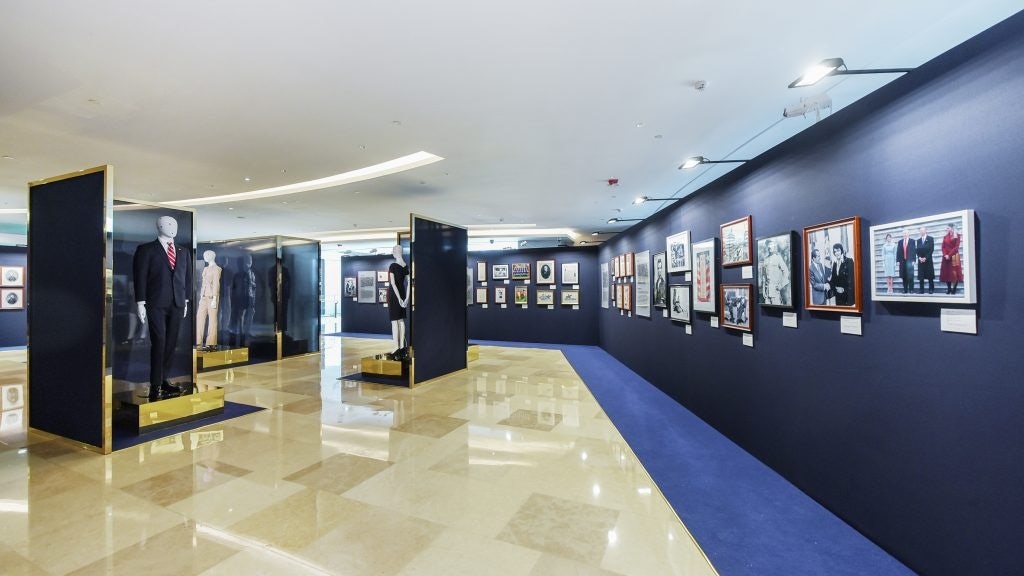
Del Vecchio felt the brand had lost its way, and there was an opportunity to get things back on track. He also managed to get the brand at a discount price, paying just $225 million at auction in the wake of September 11. Marks and Spencer had paid $750 million for it 13 years prior.
“I started shopping at Brooks Brothers in ’82, before Marks and Spencer bought the company, and I was one of those happy customers who all of a sudden found themselves in the wrong place. I saw the opportunity because I saw the good part and I saw what they were doing wrong. From what I learned from previous businesses I felt I had an opportunity to fix it,” he said.
Classic Looks#
Restoring Brooks Brothers to its former stature meant overhauling the product. Del Vecchio says within six weeks he had changed all of the fabric, the yarn, and soon after let go of the whole design team.
Inside the Taikoo Hui store, Brooks Brothers presented simple plaids, stripes, and seersucker. The first looks that came down the runway during the fashion show were Hogwarts-esque, foregrounding the brand's reputation as popular among college students.
More mature looks then emerged, including leather bombers, trench coats, turtle-neck sweaters, houndstooth overcoats, and pinstripe suits. Only a couple of outfits pushed fashion boundaries, and those were due to styling decisions rather than bold design statements. A sports coat was tucked in, for example, and an overcoat was worn inside out, exposing its lining, the way Will Smith wore his prep school jacket in The Fresh Prince of Bel Air.
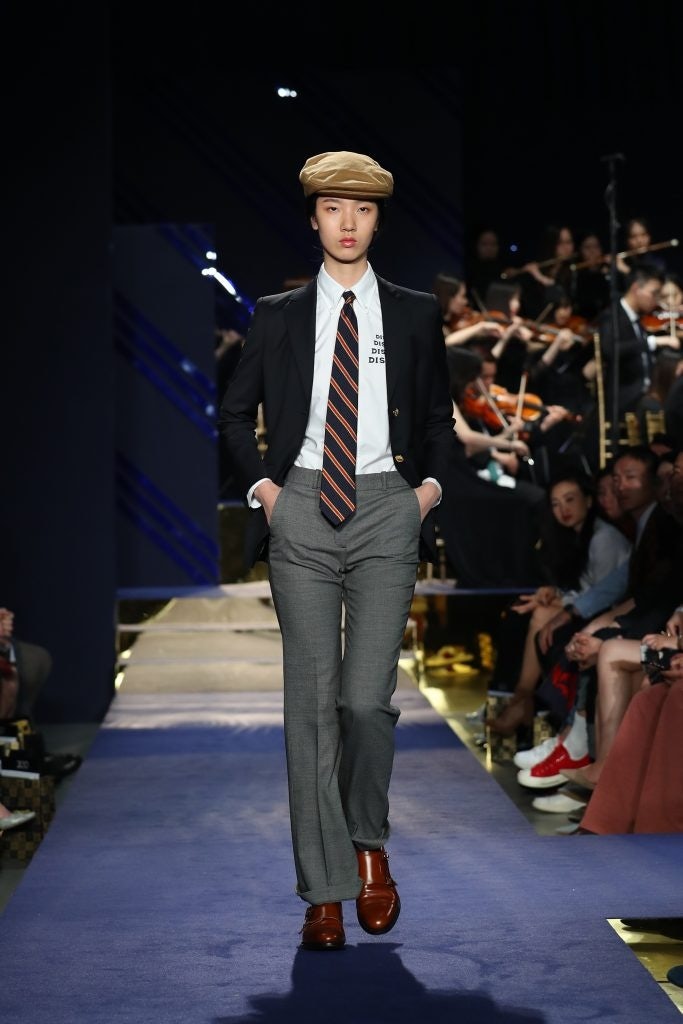
Sack Suits or Tracksuits#
Outside of the United States, Brooks Brothers' biggest market is not China but Japan, where they’ve been operating now for 40 years. In some senses, it’s a better cultural fit. Japanese students tend to dress up more during high school, and often move on to a suited-up corporate culture.
Chinese high school uniforms, on the other hand, are typically androgynous, shapeless tracksuits, and office attire here tends to be more improvised. That difference is borne out by the sales figures.
And yet, Brooks Brothers, which is widely known as Ivy League attire, their clothes at times reminiscent of Wes Anderson or Noah Baumbach characters play-acting more grownup than they really are, might just be ahead of the curve.
An Ivy League education is considered a must among many Chinese elites.
For the time being, one way Brooks Brothers is catering to Chinese customers’ more casual tastes is by focusing on its Red Fleece sub-brand, something more affordable and youthful they’re especially pushing on Alibaba’s Tmall.
“In most countries we have our own dot com, Del Vecchio said, “but in China, we started with Tmall a few months ago. We’re learning there. I would say so far, so good. We’re doing better than we originally expected, and we’re probably not that good at it yet. We’re learning every day.”
“If you look at Tmall, 50 percent of the offering is Red Fleece today, and it’s going to be more, probably, than that. In the store, on the other hand, is becoming more main line and we are reducing Red Fleece. It’s a different customer and we don’t want to confuse our customers.”
Brooks Brothers is also selling on Luxury Pavilion, Alibaba’s luxury e-commerce platform. That seems like a natural fit for the Golden Fleece line, where the brand is pushing more avant garde and unusual materials while retaining a similar, conservative style.
“Luxury Pavilion we just started, so we don’t have a lot of results yet, but we have a part of the collection that definitely belongs there, and we want to take advantage of that,” Del Vecchio said. “In the future we want to become part of other online malls, and eventually also to introduce our own website here in China.”
Ultimately, he said he was agnostic about where Chinese consumers bought the brand.
“For us, our mission is to be ready to serve the customer where the customer wants to be served. Not to tell them how to come to us. It’s been working for 200 years and we don’t want to change that."
